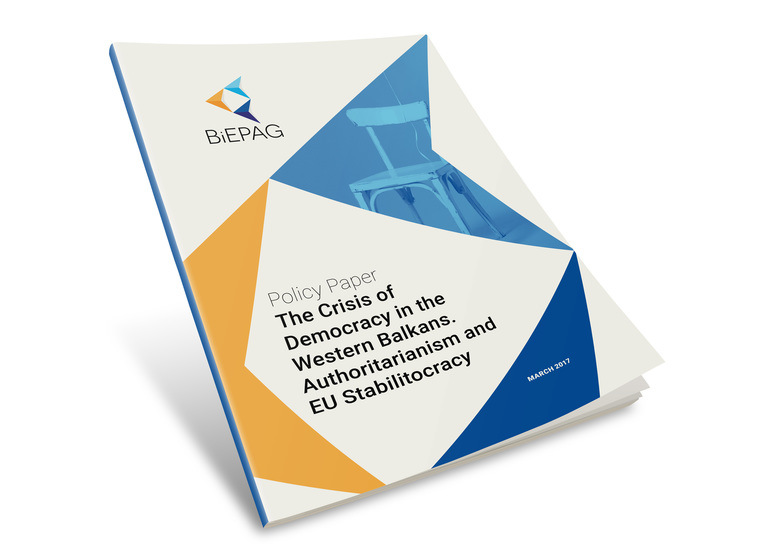
The new BiEPAG (Balkans in Europe Policy Advisory Group) study ‘The Crisis of Democracy in the Western Balkans. Authoritarianism and EU Stabilitocracy' will be presented at the round-table “The Crisis of Democracy in the Western Balkans – Authoritarianism and EU Stabilitocracy” in the European Parliament on March 28, 2017. The European perspective of the Western Balkans was solemnly reaffirmed at the 2003 EU-Western Balkans Summit in Thessaloniki. Almost 14 years later, the six Western Balkan countries are still walking a seemingly endless EU integration path, while the EU is often perceived as being too exclusively focused on the mere preservation of ‘stability’ in what is regularly referred to as its 'backyard'. However, this stability looks increasingly illusory, particularly in light of recent events. The organised roundtable will try to answer the following questions - Would it be more realistic to describe the current situation as a state of ‘stabilised fragility’? Does the EU, in its response to increasing nationalism, authoritarianism and shrinking democracy in the region, go beyond attempts to quench the occasional fires? Igor Bandovic (Senior Programme Manager, European Fund for the Balkans, EFB BiEPAG Coordinator) will be a guest speaker, joined by the authors of the BiEPAG policy brief Dr Florian Bieber (Professor and Director of the Centre for Southeast European Studies at the University of Graz, Austria; Balkans in Europe Policy Advisory Group (BiEPAG) Coordinator) and Dr Marko Kmezic (Lecturer and Senior Researcher at the Centre for Southeast European Studies at the University of Graz, Austria; BiEPAG Member). The roundtable discussion will have the following panellists: MEP Eduard KUKAN (EPP, Slovakia), Chair of the AFET Working Group on Western Balkans, Chair of the Delegation to the EU‑Serbia SAPC
- MEP Knut FLECKENSTEIN (S&D, Germany), Member of the Committee on Foreign Affairs (AFET), Rapporteur for Albania
Moderator:
- Pekka HAKALA, Head of Unit, Policy Department, DG External Policies
Discussant:
- André DE MUNTER, Policy Analyst, Policy Department, DG External Policies
They will all reflect upon the latest BiEPAG publication that is considered as both timely and topical. The authors argue that the recent rise of illiberal tendencies in several EU Member States has called into question both the EU’s role model function and the model of ‘democracy through integration’ that seemed to have successfully ensured the export of democratic standards by means of incentive-driven change in the EU’s enlargement policy. In the Western Balkans concepts such as 'illiberal democracy' or 'competitive authoritarianism' now seem to flourish. Regimes there present themselves as a new kind of 'normalcy' while conserving an 'un-democratic' core. The policy study explores the dynamics at play in the region with a view to detecting the trends, patterns and paradoxes in the triangle between democracy, authoritarianism and capitalism in a context where EU integration was so far seen as the main process to bring about democratic change.






